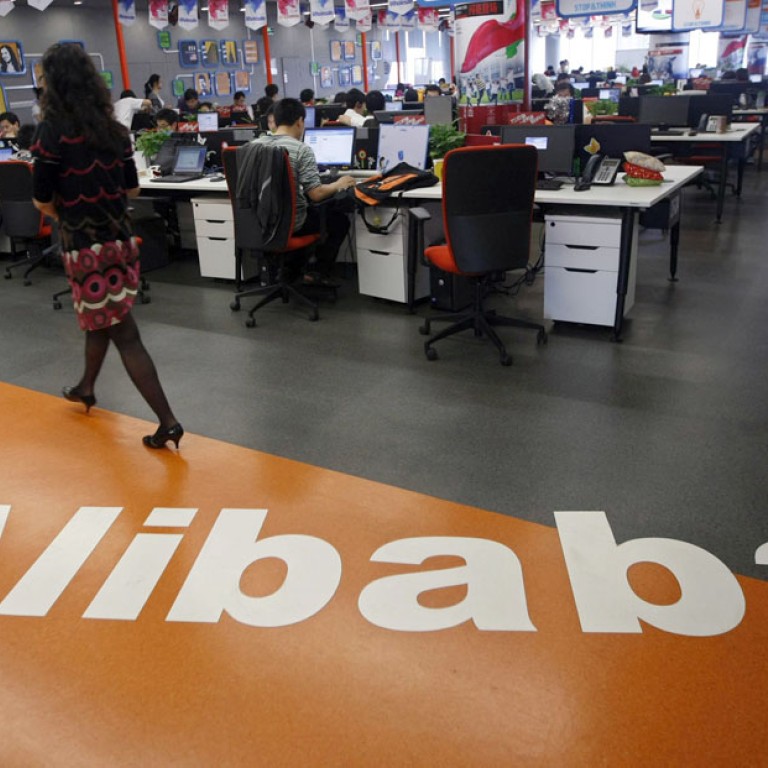
Lobbyist HKEx must learn the market still buys integrity
While the exchange operator has been a soft touch for Alibaba's PR push for exemptions to listing rules, it is now up to the SFC to hold the line
Your columnist was shocked to hear from sources at the highest level that Hong Kong Exchanges and Clearing has been lobbying on behalf of a potential listing candidate for special exemptions to the rules the exchange is supposed to help enforce.
It was no surprise to learn that the listing candidate was Alibaba, the mainland e-commerce company run by the charismatic teacher-turned-entrepreneur Jack Ma Yun that is set to bring a record-breaking listing to the market.
Alibaba, the bankers and others hoping to get in on what could be the world's biggest initial public offering (IPO) of shares this year are obviously keen to get the deal done, given the listings drought Hong Kong is currently suffering.
But is that a good enough reason to start tearing out the bits of the Hong Kong regulatory rule book that inconveniently stand in the way of the corporate structure that Ma wants to preserve, which would ensure the 10.4 per cent stake he and his management team own in the firm equates to effective control of the board?
Which are the troublesome bits? Well first, there's the Takeover and Mergers Code.
Alibaba - according to sources close to the firm - wants to preserve a partnership structure that has been in place since 2009 which would give Ma and a group of around 20 top executives the right to nominate a majority of candidates for the company's board.
That effectively dilutes the rights of ordinary shareholders and could, in theory, create a situation in which an individual investor who accumulates a 40 per cent stake in the firm may be able to resist making a general offer because he, or she, hasn't got control of the firm.
Second is the Code on Corporate Governance. Why is there a need to have an independent director on the board if management has the power to propose the majority of its members in the first place?
Third, there is the Company Law. Can investors holding 10 per cent of the stock nominate a director as stipulated and comply with company law?
I could go on.
The fact is, Hong Kong has been in this situation before and it has refused - rightly - to be held over a barrel by a potential listing candidate.
It has been told "you need us more than we need you" before, often at a deafening pitch, and it has not budged.
It was 1991. Hong Kong had barely recovered from the despair of the June 4 crackdown in Tiananmen Square two years earlier. Confidence was at its nadir.
The Jardine Group said it would delist its five companies from Hong Kong if they were not exempted from the Takeover and Mergers Code, saying it would make them vulnerable to hostile bids.
The British conglomerate accounted for 12 per cent of market capitalisation - in comparison China Mobile and HSBC now each represent about 8 per cent of the market's capitalisation - and it was the largest private employer in the city. It had some of the best political connections in London and Hong Kong regulators were repeatedly summoned to the governor's residence for talks.
Back then, Hong Kong was just a dot on the international financial radar. The market capitalisation was less than 5 per cent of today's roughly HK$20 trillion and it ranked behind Japan, Australia and Taiwan.
Yet, both the exchange and the Securities and Futures Commission (SFC) said no to Jardine for the sake of market integrity. They were right to do so and arguably that is the key reason why trust in Hong Kong remains so high and why it has grown in global stature since.
Hong Kong is home to the world's sixth largest stock market and raised more money in IPOs than any other market on the planet in 2009, 2010 and 2011.
If Hong Kong agrees to the plea, Alibaba's exemption will not be an individual case, but the beginning of the end of Hong Kong's reputation.
It is an awkward position for the profit-driven exchange, especially when the subtext to the request for a new approach for Alibaba is that, without it, the listing will take place in New York. That's potentially a HK$100 billion missed opportunity and big business to lose. But to see the exchange, which also plays a regulatory role, acting as a company lobbyist is truly shocking.
If it agrees with the line peddled by Alibaba's cheerleaders that a new listing model is needed to support firms where the founders hold little in the way of equity stakes, but hold the bulk of the intellectual capital that makes the company viable, then a proper consultation is needed followed by a proposal to vote on. That's what happened a decade ago with the listing of infrastructure projects which have no profit record.
Instead, the PR battle is pushing the debate into a take-it-or-leave-it situation, with the clock ticking. That is unacceptable and investors deserve better from Hong Kong's financial supervisors.
Thankfully, government sources have told your columnist that they intend to stick to the letter of the listings law and leave this as a matter for the SFC to decide. So far, the SFC has held fast and said there will be no exceptions.

